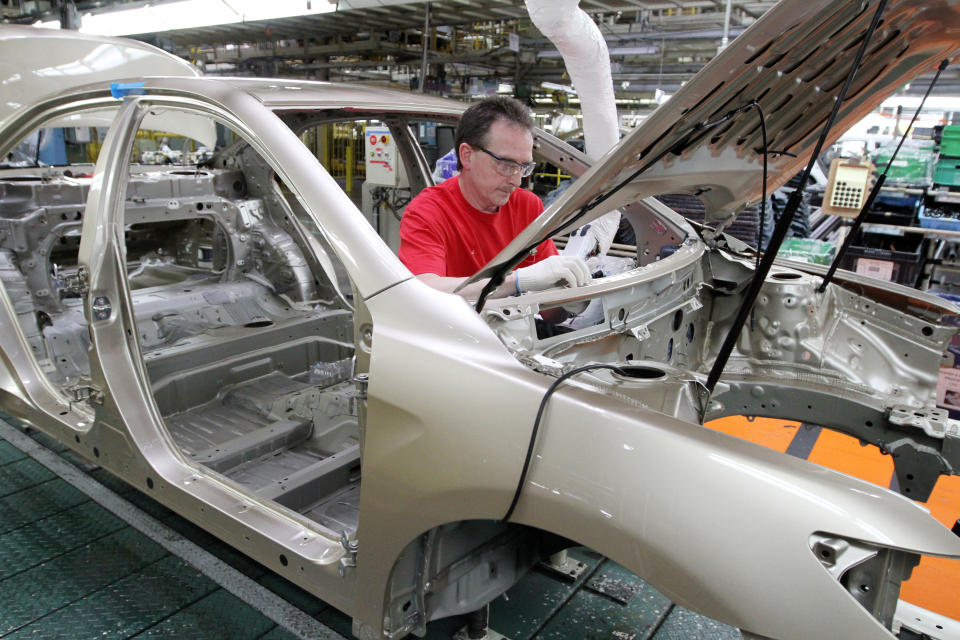Workforce transformation: How to future-proof your job

Australia’s job landscape will undergo a rapid transformation over the next ten years, and if we want to keep up and keep our jobs, there’s one particular skill we will need to master.
According to KPMG demographer Bernard Salt, the great challenge of the future will be for workers to embrace huge change.
A new study commissioned by the National Broadband Network found that three million new jobs will be created by 2030, with a 55 per cent increase in female workers, and a 195 per cent rise in workers over the age of 65.

Salt says that while all workers will need technology proficiency, it is in fact ‘soft skills’ that must be taught to Australian children.
‘This is the skill of being fluid, flexible, agile, social,” Salt told Yahoo7 Finance.
“If you have technical training, whether it is in coding or mathematics or music, whatever it is, you need to augment that in the 21st century to future-proof your career.”
According to Salt, the worst thing you can do in a rapid period of technology change is be a ‘rigid person who sees yourself having a particular skill set and who struggles working outside your social sphere.’
“A social person with flexible skills with social skills can fit themselves into an ever-changing world,” Salt said.
Which workers will suffer and who will thrive?
Those who will be most affected by the transition are workers from industries linked to the 20th century.
New technology will oversee a decline in jobs like bank tellers, ticket collectors and farm labourers, while population growth means the demand will remain strong for ‘the doers’ such as plumbers, elecricians and carpenters.
But while Salt admits changes to the job landscape aren’t easy for many Australians, he views it as a chance to free up human effort for more rewarding work.

“You are 48, you’ve worked as a car assembly plant for 20 years, you’ve got a family with kids at school - you can't very well up and off to the Pilbara,” Salt said.
“These are the great challenges we have as a society.
“But the jobs that are likely to be taken first by machines are the jobs we don’t actually want anyway.
“People are being angstful about losing those jobs but we aren’t doing any dull, dangerous and dirty jobs that we were doing in the 19th century.”
While the report indicates certain jobs would eventually cease to exist, Salt was particularly surprised by the rise in demand for photographers.
“I would have though with digital photography and phones with cameras that the demand for photographers would have contracted, but in fact is has exploded,” Salt said.

“The reason I think is that we are far more visual people these days. We communicate with each other on social media, we curate our persona.”
“It is the logic of, ‘we are going to have computers, therefore we are going to have no paper demand in the future’ when it is quite the reverse.” Salt said.
He says camera phones have only sharpened our appetite for the visual medium.
“It shows how new technology can unleash this whole creative class that I think we are going to see emerge - photographers being one, but we might see artists, performers, people interested in wellness conducting a yoga or pilates class on Skype from their studio".
What job doesn’t exist now but will in the future?
The idea of a ‘life coach’ will manifest itself in other forms as we continue the quest to curate our online personas, Salt says.
“Maybe we will have brand managers of people who want to fine-tune their imagery, personal brand consultant, the same way you can get people to tell you how to dress, social media stylist.
“Some of those people on those fashion shows have made their name by being a stylist, so something like a social media stylist, social media style manager.”
You can follow Ingrid Fuary-Wagner on Twitter at @ingridFW1
Read more about the 'workers of the future' and the nbn report here.


 Yahoo Finance
Yahoo Finance 